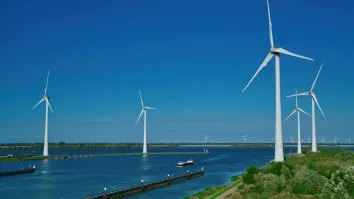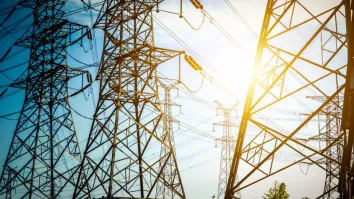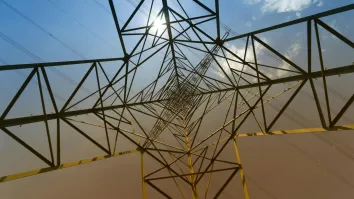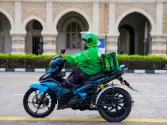
Indonesia to displace fossil fuels with renewables to meet targets
46 gas-fired power plants with 5.9GW capacity could be replaced.
The Indonesian government will make changes to its existing thermal power fleet to meet the renewable energy target of 2025. According to GlobalData, as part of the government’s replacement mechanism, 2,246 units of diesel power plants aggregating 1.8GW, 23 units of steam power plants aggregating 5.6GW, and 46 gas-fired power plants aggregating 5.9GW would be replaced by renewable energy units.
Diesel-fired plants, which have been in operation for more than 15 years and, coal and gas-fired plants operating for more than 20 years have been included under the replacement mechanism.
GlobalData analyst Mohit Prasad commented, “The under-utilised renewable energy market of Indonesia has huge investment opportunities. The country requires an investment of $41.2b to achieve an additional renewable energy target of 17.4 GW by 2025. The government has two options to achieve its 2025 target either by having more renewable energy installations or reducing the dependence on fossil-fuelled generation.
“The acceleration in renewable energy installations will happen only if the government amends existing regulations for which it has already started renegotiations on the renewable energy electricity prices with the developers. The country is a major coal exporter with around 50% of its electricity needs being served by coal-fired plants will have to make a tectonic shift in its generation fleet. So, with this announcement, the government has adopted two-pronged approaches to achieve its renewable energy target by 2025,” Prasad added.
Indonesia has set a renewable energy target of 23% in the energy mix by 2025. The country has renewable energy potential of more than 400GW but is actually utilising much less for power generation, according to GlobalData.
As per GlobalData, the country is expected to witness cumulative installations of 68.3GW at the end of 2019 out of which 58GW (85%) would be from thermal related technologies. Coal-fired plants are estimated to have cumulative installations of 32.3GW contributing around 47.3% to the power mix followed by gas with 21.2GW (31%) and oil with 4.5GW (6.6%) respectively. Wind and solar PV together are estimated to contribute around 0.3% to the power mix.
Currently, all renewable energy projects in Indonesia are developed under the build, own, operate and transfer (BOOT) scheme where PT Perusahaan Listrik Negara (PLN) is the sole distributor.
“In 2017, the government introduced certain mandatory requirements for power purchase agreements (PPAs) which had bankability provisions around risks related to government force majeure (GFM) and natural force majeure (NFM) which can affect the grid and the relevant parties to the PPAs,” GlobalData said.
“In the case of NFM, whether the developers would be getting paid by PT PLN for the units they are sending to the grid is unavailable and this is creating a state of dilemma amongst renewable energy developers whether to go ahead with investments or not. So, in order to accelerate the renewable energy investments, the government has to amend existing regulations on renewable energy and renegotiate the renewable energy electricity prices with the developers,” Prasad commented.



















 Advertise
Advertise







